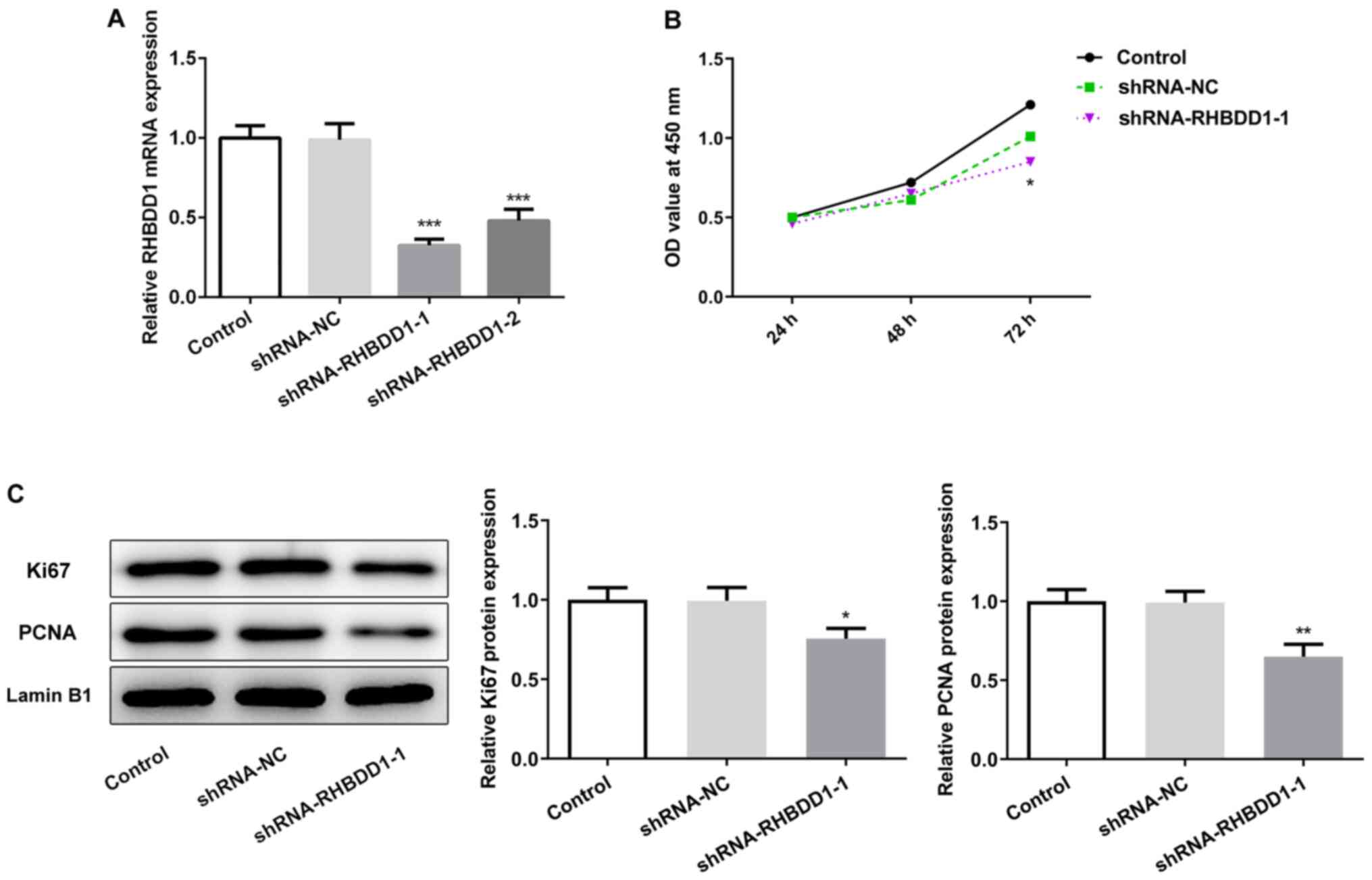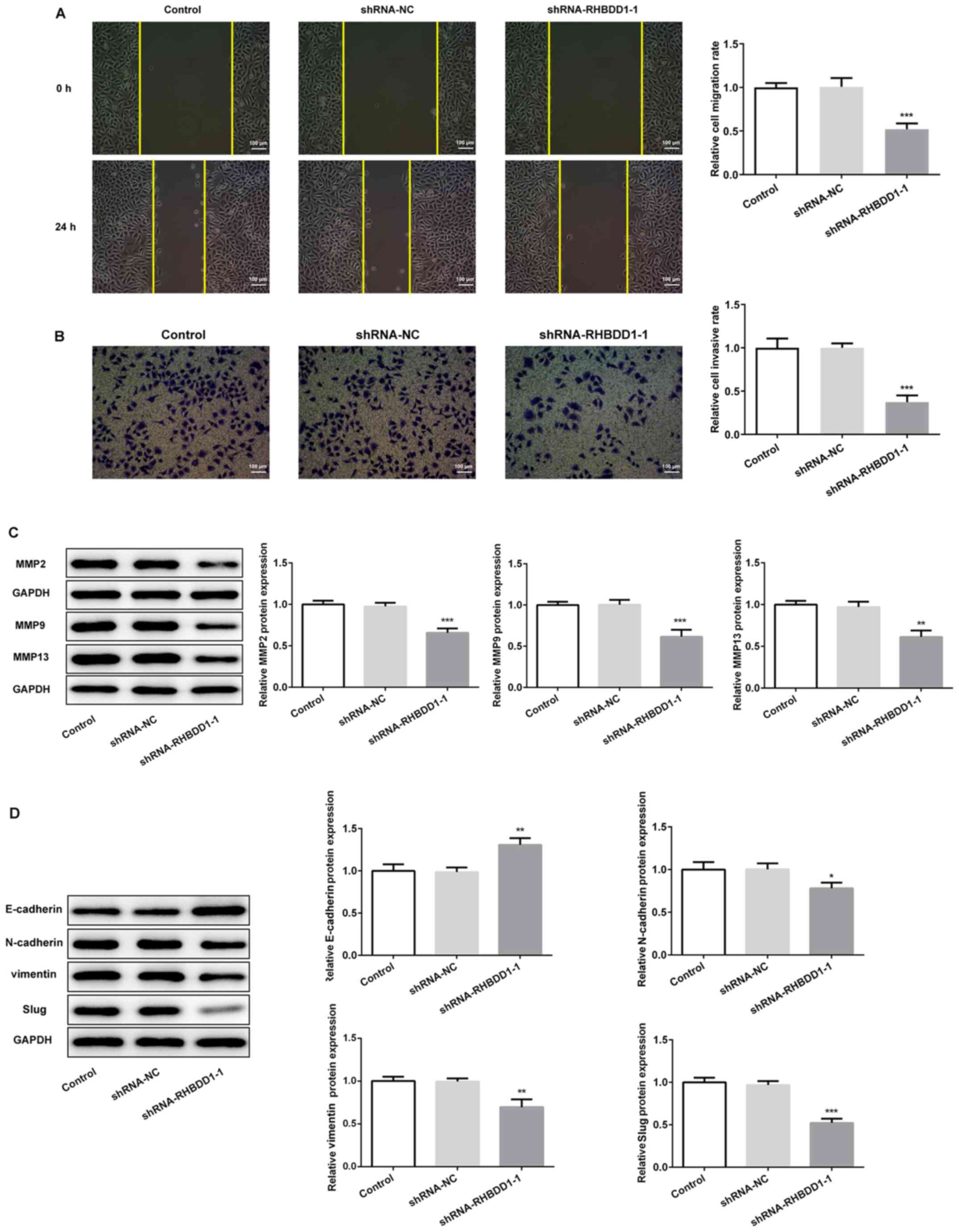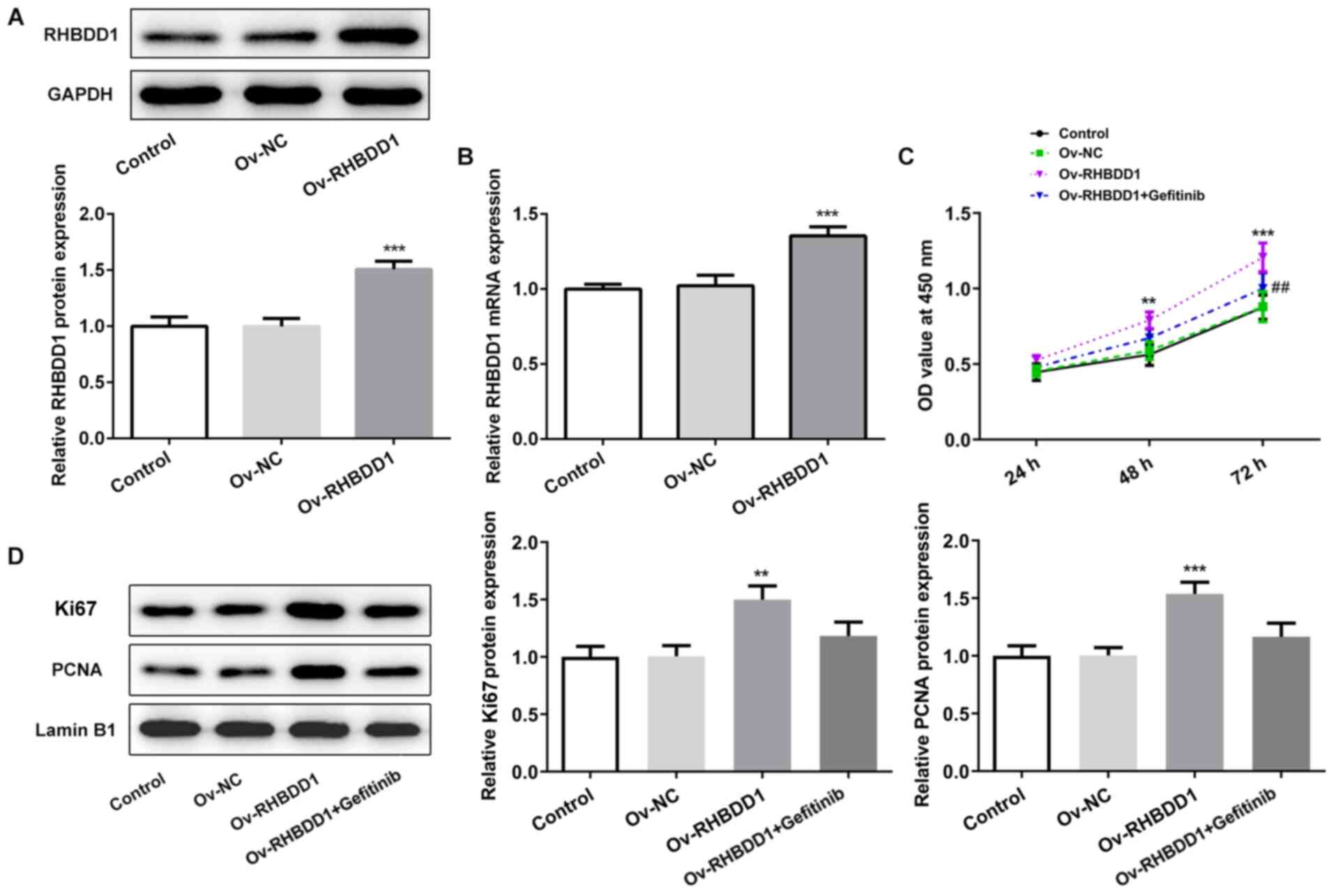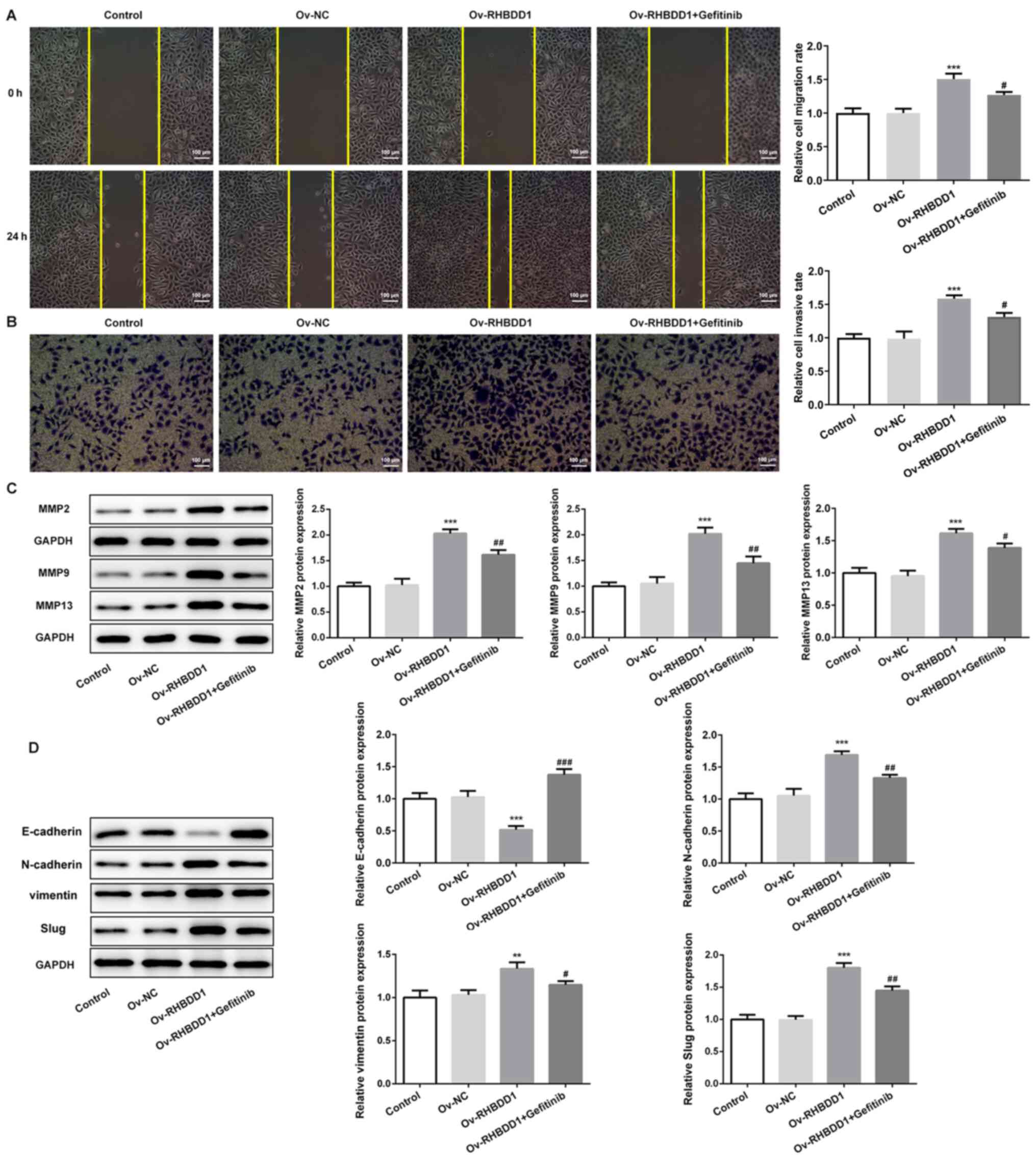|
1
|
Chen S, Wang Y, Xiong Y, Peng T, Lu M,
Zhang L and Guo Z: Wild-type IDH1 inhibits the tumor growth through
degrading HIF-α in renal cell carcinoma. Int J Biol Sci.
17:1250–1262. 2021. View Article : Google Scholar : PubMed/NCBI
|
|
2
|
Huang T, Wang X, Yang X, Ji J, Wang Q, Yue
X and Dong Z: long non-coding RNA DUXAP8 enhances renal cell
carcinoma progression via downregulating miR-126. Med Sci Monit.
24:7340–7347. 2018. View Article : Google Scholar : PubMed/NCBI
|
|
3
|
Cohen HT and McGovern FJ: Renal-cell
carcinoma. N Engl J Med. 353:2477–2490. 2005. View Article : Google Scholar : PubMed/NCBI
|
|
4
|
Zhu H, Wang Z, Xu Q, Zhang Y, Zhai Y, Bai
J, Liu M, Hui Z and Xu N: Inhibition of STAT1 sensitizes renal cell
carcinoma cells to radiotherapy and chemotherapy. Cancer Biol Ther.
13:401–407. 2012. View Article : Google Scholar : PubMed/NCBI
|
|
5
|
Teng ZY, Cheng XL, Cai XT, Yang Y, Sun XY,
Xu JD, Lu WG, Chen J, Hu CP, Zhou Q, et al: Ancient Chinese Formula
Qiong-Yu-Gao Protects Against Cisplatin-Induced Nephrotoxicity
Without Reducing Anti-tumor Activity. Sci Rep. 5:155922015.
View Article : Google Scholar : PubMed/NCBI
|
|
6
|
Flippot R, Escudier B and Albiges L:
Immune Checkpoint Inhibitors: Toward New Paradigms in Renal Cell
Carcinoma. Drugs. 78:1443–1457. 2018. View Article : Google Scholar : PubMed/NCBI
|
|
7
|
Zhong Y, Lu YT, Sun Y, Shi ZH, Li NG, Tang
YP and Duan JA: Recent opportunities in matrix metalloproteinase
inhibitor drug design for cancer. Expert Opin Drug Discov.
13:75–87. 2018. View Article : Google Scholar : PubMed/NCBI
|
|
8
|
Liu QH, Wang Y, Yong HM, Hou PF, Pan J,
Bai J and Zheng JN: XRCC1 serves as a potential prognostic
indicator for clear cell renal cell carcinoma and inhibits its
invasion and metastasis through suppressing MMP-2 and MMP-9.
Oncotarget. 8:109382–109392. 2017. View Article : Google Scholar : PubMed/NCBI
|
|
9
|
Liang F, Wang YG and Wang C: Metformin
inhibited growth, invasion and metastasis of esophageal squamous
Cell Carcinoma in vitro and in vivo. Cell Physiol Biochem.
51:1276–1286. 2018. View Article : Google Scholar : PubMed/NCBI
|
|
10
|
Tsai JH, Donaher JL, Murphy DA, Chau S and
Yang J: Spatiotemporal regulation of epithelial-mesenchymal
transition is essential for squamous cell carcinoma metastasis.
Cancer Cell. 22:725–736. 2012. View Article : Google Scholar : PubMed/NCBI
|
|
11
|
Zhang P, Sun Y and Ma L: ZEB1: At the
crossroads of epithelial-mesenchymal transition, metastasis and
therapy resistance. Cell Cycle. 14:481–487. 2015. View Article : Google Scholar : PubMed/NCBI
|
|
12
|
Pan G, Liu Y, Shang L, Zhou F and Yang S:
EMT-associated microRNAs and their roles in cancer stemness and
drug resistance. Cancer Commun (Lond). 41:199–217. 2021. View Article : Google Scholar : PubMed/NCBI
|
|
13
|
Chuang MJ, Sun KH, Tang SJ, Deng MW, Wu
YH, Sung JS, Cha TL and Sun GH: Tumor-derived tumor necrosis
factor-alpha promotes progression and epithelial-mesenchymal
transition in renal cell carcinoma cells. Cancer Sci. 99:905–913.
2008. View Article : Google Scholar : PubMed/NCBI
|
|
14
|
Liao BC, Lin CC and Yang JC: Second and
third-generation epidermal growth factor receptor tyrosine kinase
inhibitors in advanced nonsmall cell lung cancer. Curr Opin Oncol.
27:94–101. 2015. View Article : Google Scholar : PubMed/NCBI
|
|
15
|
Singh D, Attri BK, Gill RK and Bariwal J:
Review on EGFR Inhibitors: Critical Updates. Mini Rev Med Chem.
16:1134–1166. 2016. View Article : Google Scholar : PubMed/NCBI
|
|
16
|
Wang J, Xu H, Cheng X, Yang J, Yan Z, Ma
H, Zhao Y, Ommati MM, Manthari RK and Wang J: Calcium relieves
fluoride-induced bone damage through the PI3K/AKT pathway. Food
Funct. 11:1155–1164. 2020. View Article : Google Scholar : PubMed/NCBI
|
|
17
|
Manning BD and Toker A: AKT/PKB Signaling:
Navigating the Network. Cell. 169:381–405. 2017. View Article : Google Scholar : PubMed/NCBI
|
|
18
|
Brown JS and Banerji U: Maximising the
potential of AKT inhibitors as anti-cancer treatments. Pharmacol
Ther. 172:101–115. 2017. View Article : Google Scholar : PubMed/NCBI
|
|
19
|
Liu L, Miao L, Liu Y, Qi A, Xie P, Chen J
and Zhu H: S100A11 regulates renal carcinoma cell proliferation,
invasion, and migration via the EGFR/Akt signaling pathway and
E-cadherin. Tumour Biol. 39:10104283177053372017. View Article : Google Scholar : PubMed/NCBI
|
|
20
|
Wang Y, Guan X, Fok KL, Li S, Zhang X,
Miao S, Zong S, Koide SS, Chan HC and Wang L: A novel member of the
Rhomboid family, RHBDD1, regulates BIK-mediated apoptosis. Cell Mol
Life Sci. 65:3822–3829. 2008. View Article : Google Scholar : PubMed/NCBI
|
|
21
|
Zhao C, Ling X, Li X, Hou X and Zhao D:
MicroRNA-138-5p inhibits cell migration, invasion and EMT in breast
cancer by directly targeting RHBDD1. Breast Cancer. 26:817–825.
2019. View Article : Google Scholar : PubMed/NCBI
|
|
22
|
Huang C, Ji X, Peng Y, Wu M, Wu W, Luo Y,
Cheng G and Zhu Y: Silencing of rhomboid domain containing 1 to
inhibit the metastasis of human breast cancer cells in vitro. Iran
J Basic Med Sci. 21:1161–1166. 2018.PubMed/NCBI
|
|
23
|
Song W, Liu W, Zhao H, Li S, Guan X, Ying
J, Zhang Y, Miao F, Zhang M, Ren X, et al: Rhomboid domain
containing 1 promotes colorectal cancer growth through activation
of the EGFR signalling pathway. Nat Commun. 6:80222015. View Article : Google Scholar : PubMed/NCBI
|
|
24
|
Livak KJ and Schmittgen TD: Analysis of
relative gene expression data using real-time quantitative PCR and
the 2(-Delta Delta C(T)) Method. Methods. 25:402–408. 2001.
View Article : Google Scholar : PubMed/NCBI
|
|
25
|
Kitano H, Kitadai Y, Teishima J, Yuge R,
Shinmei S, Goto K, Inoue S, Hayashi T, Sentani K, Yasui W, et al:
Combination therapy using molecular-targeted drugs modulates tumor
microenvironment and impairs tumor growth in renal cell carcinoma.
Cancer Med. 6:2308–2320. 2017. View Article : Google Scholar : PubMed/NCBI
|
|
26
|
Hawkins R, Fife K, Hurst M, Wang M,
Naicker N, Nolasco S, Eisen T, Matakidou A and Gordon J: Treatment
patterns and health outcomes in metastatic renal cell carcinoma
patients treated with targeted systemic therapies in the UK. BMC
Cancer. 20:6702020. View Article : Google Scholar : PubMed/NCBI
|
|
27
|
Liu XN, Tang ZH, Zhang Y, Pan QC, Chen XH,
Yu YS and Zang GQ: Lentivirus-mediated silencing of rhomboid domain
containing 1 suppresses tumor growth and induces apoptosis in
hepatoma HepG2 cells. Asian Pac J Cancer Prev. 14:5–9. 2013.
View Article : Google Scholar : PubMed/NCBI
|
|
28
|
Zhang M, Miao F, Huang R, Liu W, Zhao Y,
Jiao T, Lu Y, Wu F, Wang X, Wang H, et al: RHBDD1 promotes
colorectal cancer metastasis through the Wnt signaling pathway and
its downstream target ZEB1. J Exp Clin Cancer Res. 37:222018.
View Article : Google Scholar : PubMed/NCBI
|
|
29
|
Souza JL, Martins-Cardoso K, Guimarães IS,
de Melo AC, Lopes AH, Monteiro RQ and Almeida VH: Interplay Between
EGFR and the Platelet-Activating Factor/PAF Receptor Signaling Axis
Mediates Aggressive Behavior of Cervical Cancer. Front Oncol.
10:5572802020. View Article : Google Scholar : PubMed/NCBI
|
|
30
|
Zhou Q, Huang T, Jiang Z, Ge C, Chen X,
Zhang L, Zhao F, Zhu M, Chen T, Cui Y, et al: Upregulation of SNX5
predicts poor prognosis and promotes hepatocellular carcinoma
progression by modulating the EGFR-ERK1/2 signaling pathway.
Oncogene. 39:2140–2155. 2020. View Article : Google Scholar : PubMed/NCBI
|
|
31
|
Yin L, Gao S, Shi H, Wang K, Yang H and
Peng B: TIP-B1 promotes kidney clear cell carcinoma growth and
metastasis via EGFR/AKT signaling. Aging (Albany NY). 11:7914–7937.
2019. View Article : Google Scholar : PubMed/NCBI
|





















